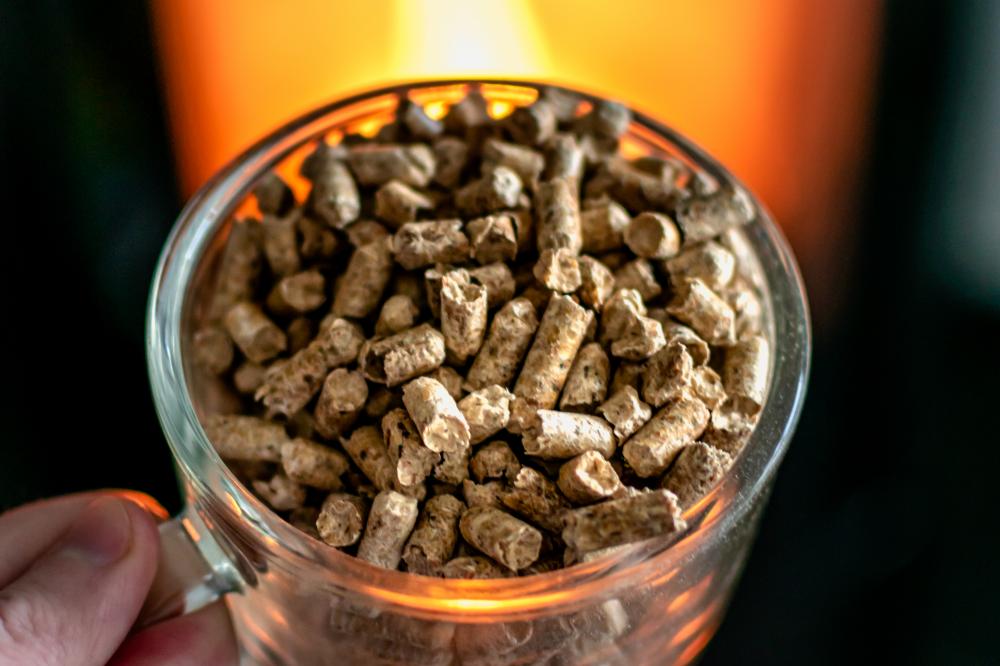
Rise of Wood Pellets in Georgia
Georgia has emerged as a pivotal player in the biomass fuel sector, particularly in the production and export of
wood pellets. The state benefits from its rich forestry resources and a commitment to sustainability, driving its
leadership in this burgeoning market. Notably, a significant portion of its wood pellet production is exported to
European countries such as the UK and the Netherlands, where demand for renewable energy sources is robust.
This wood fuel’s success story in Georgia is a blend of historical forestry practices and modern energy needs.
The combination of abundant raw materials and cutting-edge processing technologies has propelled Georgia to the
forefront of this green energy movement.
The Role of Biomass EPC in Georgia
Innovations by Player Design Inc. (PDI)
With a stronghold in the biomass engineering, procurement, and construction (EPC) sector, Player Design Inc. (PDI)
plays an instrumental role in Georgia’s wood pellet industry. PDI’s specialization in the design and
implementation of biomass processing systems enables them to address diverse client needs while adhering to
stringent environmental standards.
Advanced Engineering Solutions
PDI’s tailored engineering solutions encompass everything from high-efficiency industrial dryers to advanced
kiln heating systems. These innovations ensure that wood pellets maintain energy integrity and sustainability
throughout the production process.
Sustainability and Efficiency
PDI’s focus on sustainable solutions is critical for long-term success in the biomass sector. Their bespoke
engineering techniques not only enhance operational efficiency but also minimize environmental impacts, aligning
with global trends toward eco-friendly energy solutions.
Sourcing and Manufacturing of Wood Pellets
Wood pellet production in Georgia capitalizes on the state’s rich forestry resources. The process begins with
sourcing biomass material, typically from manufacturing residues, discarded wood products, and yard trimmings. This
strategy ensures a renewable supply chain while reducing waste.
Processing with Precision
The manufacturing process involves chipping, drying, and compressing wood into dense pellets that offer high
calorific value. This transformation requires precision engineering and adherence to quality standards to produce
pellets that meet both domestic and international demands.
Technological advancements, particularly those driven by companies like PDI, have refined these processes,
increasing both yield and quality while reducing the carbon footprint of production.
Economic Impact on Georgia
The wood pellet industry significantly contributes to Georgia’s economy, providing jobs and fostering
technological innovation. The growing demand for pellets has led to the establishment of numerous manufacturing
facilities, creating employment opportunities across the state.
Exports and Global Influence
Georgia’s position as a leading exporter of wood pellets boosts the state’s economic profile. By tapping
into international markets, particularly in Europe, Georgia leverages its natural resources and engineering
expertise for economic growth.
The state’s economic landscape benefits not only from direct sales but also from the secondary industries
supporting pellet production, such as logistics, engineering, and services.
Environmental Considerations
With an increasing focus on reducing carbon emissions, the environmental benefits of using wood pellets as a fuel
source are compelling. Georgia’s industry has embraced sustainable practices, ensuring minimal impact on the
environment.
Renewable Energy and Carbon Neutrality
Wood pellets are a carbon-neutral energy source, as the carbon released during burning is offset by the carbon
absorbed by trees during their growth. This balance makes wood pellets an attractive option for reducing greenhouse
gas emissions compared to fossil fuels.
Georgia’s commitment to sustainability is evident in its forestry management practices, which emphasize regrowth
and ecosystem balance while supporting the biomass industry.
Innovation in Wood Pellet Technology
PDI’s steam-exploded wood pellets represent a breakthrough in biomass processing. This innovative technology
increases the surface area of wood fibers, enhancing the pellets’ combustion efficiency and energy output.
Such advancements not only improve the calorific value of pellets but also contribute to more sustainable
manufacturing practices. These innovations showcase Georgia’s role as a leader in the renewable energy sector,
bringing cutting-edge technology to market.
Georgia as a Model for Sustainable Biomass Use
Georgia’s approach to wood pellets Georgia production serves as a model for sustainable biomass use. Its
integration of advanced engineering, sustainable sourcing, and efficient production practices offers valuable
lessons for other regions seeking to harness biomass as a renewable resource.
Challenges and Opportunities
Despite its successes, the industry faces challenges such as maintaining competitive pricing and ensuring ongoing
environmental compliance. However, these challenges also present opportunities for innovation and improvement,
positioning Georgia as a leader in sustainable energy production.
The synergy between economic and environmental goals reflects a forward-thinking approach that benefits both local
communities and the global energy landscape.
The Future of Wood Pellets in Georgia
As the global demand for renewable energy sources grows, Georgia’s wood pellet industry is poised for expansion.
Innovations in technology and process optimization promise to further enhance production efficiency and
environmental stewardship.
Strategic Growth and Development
Georgia’s strategic focus on expanding its biomass sector aligns with broader trends in renewable energy
adoption. With continued investment and innovation, the state is well-positioned to increase its market share and
influence in the global arena.
This growth promises not only economic benefits but also a positive environmental impact, reinforcing Georgia’s
commitment to sustainable development and green energy leadership.

Understanding Georgia’s Leadership in Wood Pellet Production
Georgia has become a key player in the wood pellet industry, thanks to its rich forestry resources and
commitment to sustainable practices. What factors have contributed most to Georgia’s rise as a leader in
this sector?
From my experience working with a leading biomass EPC company, several factors have propelled Georgia to the
forefront of wood pellet production. Firstly, Georgia’s rich forestry resources provide a steady supply of
raw materials. Coupled with innovative processing technologies, these resources are efficiently transformed into
high-calorific wood pellets. Furthermore, Georgia’s strong focus on sustainability and environmental
compliance has allowed it to tap into the European market, where demand for renewable energy sources is
especially high. This combination of resources, technology, and commitment to sustainable practices has
established Georgia as a leader in wood pellet production.
Role of Innovation in Georgia’s Biomass Industry
Technology plays a crucial role in enhancing the efficiency and sustainability of wood pellet production. How
has innovation driven Georgia’s success in this industry?
Innovations in the biomass industry, particularly from companies like ours, have been pivotal to Georgia’s
success. For instance, the introduction of advanced kiln heating systems and high-efficiency industrial dryers
have significantly improved processing efficiency and energy integrity. Our patented steam-exploded wood pellet
technology enhances the combustion efficiency and energy output of the pellets, making them more attractive to
international markets. These innovations not only ensure high-quality products but also align with global trends
toward eco-friendly energy solutions.
Impact of Georgia’s Wood Pellet Industry on Local Economy
What economic benefits has Georgia experienced due to its leadership in wood pellet production?
The wood pellet industry has substantially boosted Georgia’s economy through job creation and technological
advancements. New manufacturing facilities have emerged to meet demand, providing employment opportunities
across various sectors including logistics and engineering. Additionally, exporting wood pellets to
international markets, especially in Europe, has enhanced Georgia’s economic profile. This export activity
not only supports direct sales but also stimulates secondary industries that contribute to the state’s
economic growth.
Addressing Environmental Concerns of Wood Biomass
With growing environmental awareness, how does the use of wood pellets align with efforts to reduce carbon
footprints?
Wood pellets are considered a carbon-neutral energy source, making them a compelling option to reduce carbon
footprints. The carbon released during combustion is roughly equivalent to the carbon absorbed by trees during
growth, creating a balanced carbon cycle. In Georgia, sustainable forestry management practices are emphasized
to ensure ecosystem balance and support the biomass industry. By focusing on regrowth and responsible sourcing,
the industry minimizes environmental impacts, aligning with long-term sustainability goals.
Sustainable Sourcing and Manufacturing of Wood Pellets
What are the key practices in sourcing and manufacturing wood pellets in Georgia that ensure sustainability?
In Georgia, the wood pellet manufacturing process begins with sourcing biomass from sustainable materials like
manufacturing residues and discarded wood products. This approach minimizes waste and supports a renewable
supply chain. The manufacturing process involves precision engineering, including chipping, drying, and
compressing the wood into high-calorific pellets. Technological advancements, driven by companies like ours,
have improved this process, increasing both yield and quality while reducing the carbon footprint.
Future Outlook for Georgia’s Wood Pellet Industry
What does the future hold for Georgia’s wood pellet industry as global demand for renewable energy grows?
As global demand for renewable energy increases, Georgia’s wood pellet industry is poised for significant
growth. Continued investment in technology and process optimization will enhance production efficiency and
environmental stewardship. Georgia’s strategic expansion in the biomass sector aligns with global trends,
positioning the state to increase its market share and influence on the international stage. This growth
promises not just economic advantages but also reinforces Georgia’s commitment to sustainable development
and leadership in green energy.
Resources
-
Georgia.gov – Official state website of
Georgia, offering insights into the state’s economic development and environmental initiatives. -
United Nations Sustainable Development Goals – Learn about the UN’s sustainability
goals and how they align with Georgia’s efforts in biomass production.